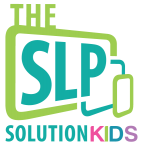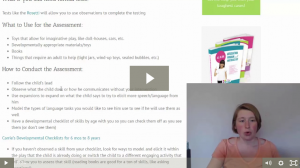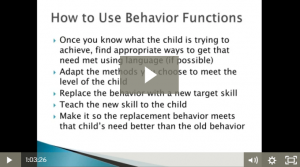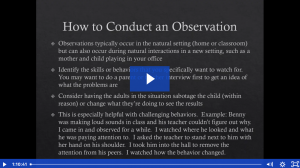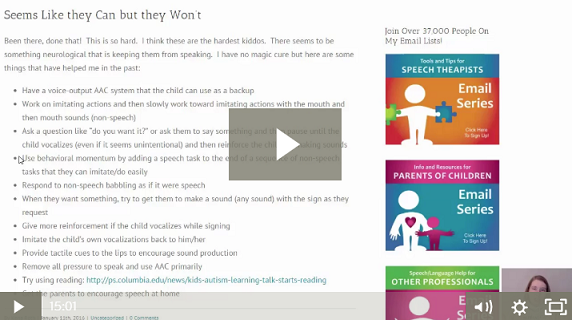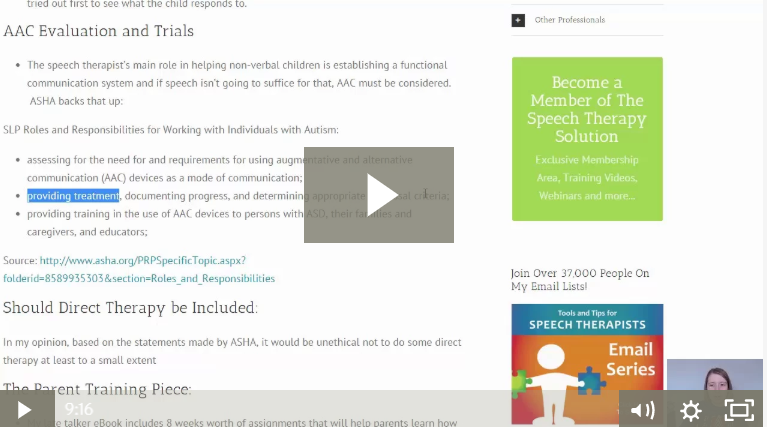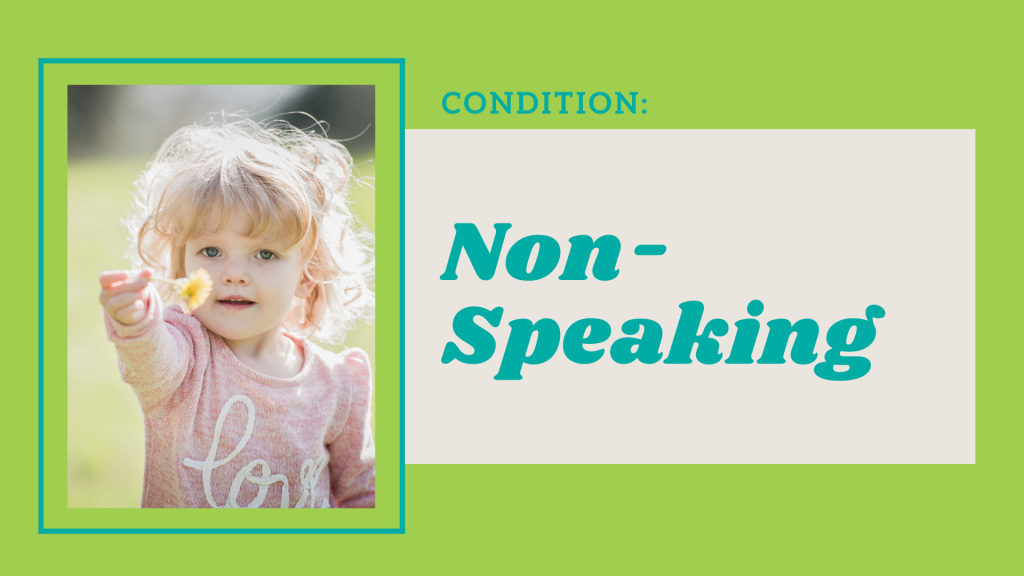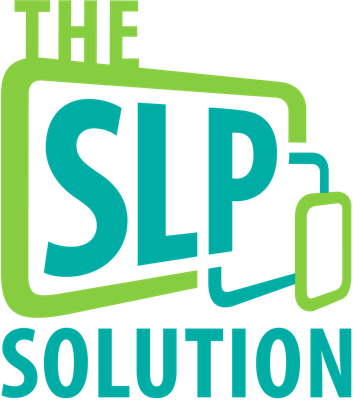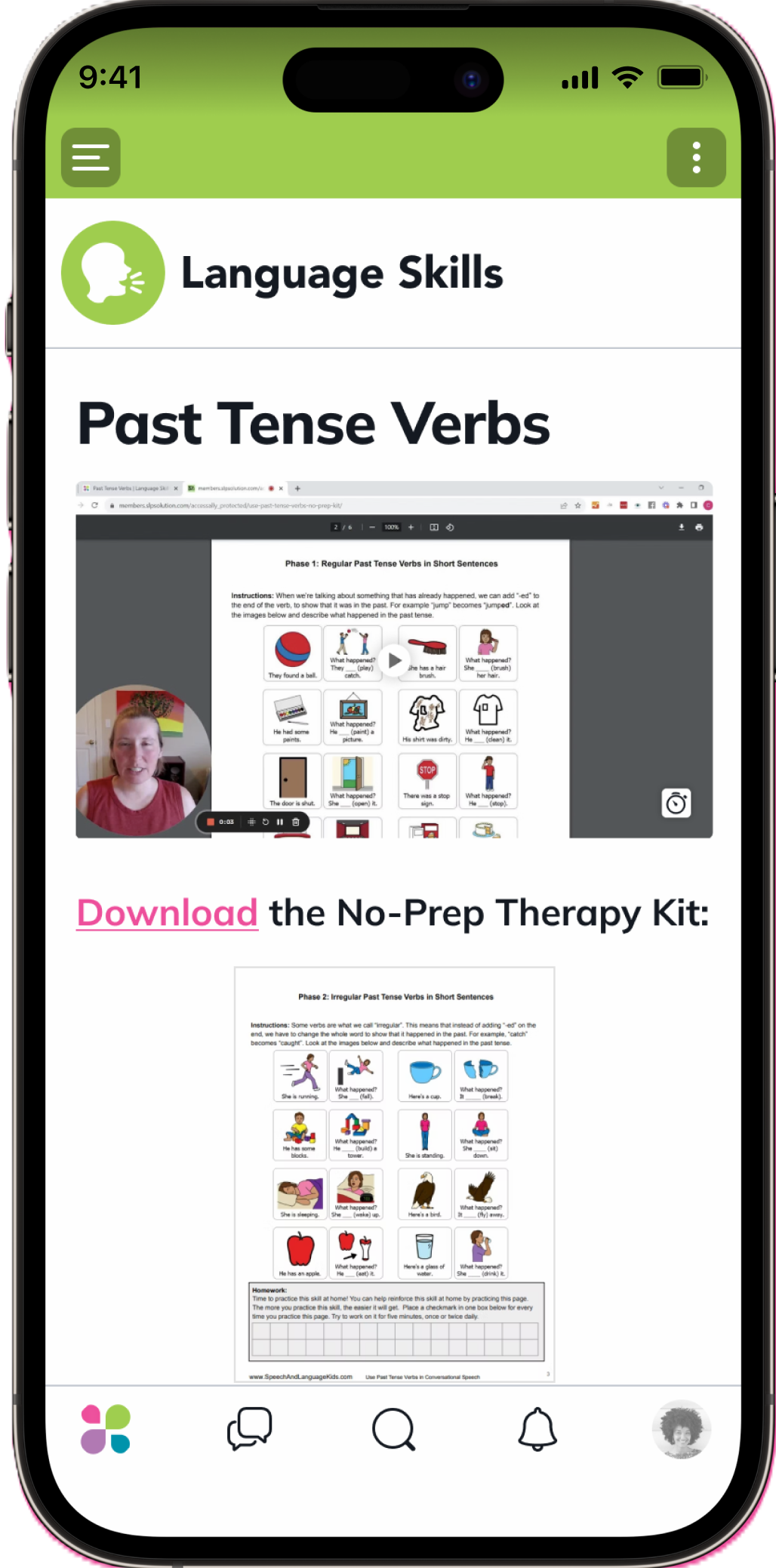Condition: Late Talker
Jump To:
Norms by Age Evaluation Suggested Goals Therapy
Definition:
According to the Hanen Centre Website, a late talker is defined as a child that is 18-30 months of age who seems to understand language well but does not talk or say words as much as is expected for a child that age. Late talkers are typically developing well in other areas such as play skills, motor skills, thinking skills, etc.
Developmental Norms:
To give you a point of reference for how many words a child should be using, here is a chart based on age. The number of words represents the average size of a child’s vocabulary at that age, but slightly lower isn’t necessarily a large concern. However, if a child is far off from these numbers, there may be a problem.
Age of Child ~ Number of Words
12 months ~ 2-6 words
15 months ~ 10 words
18 months ~ 50 words
24 months (2 years) ~ 200-300 words
30 months ~ 450 words
36 months (3 years) ~ 1,000 words
42 months ~ 1,200 words
48 months (4 years) ~ 1,600 words
Obtained from Linguisystems Website
Evaluation:
If you suspect a child is a late talker, a full communication evaluation should be conducted. A full medical history and background should be collected and all areas of communication should be considered in the evaluation. If we see that a child is delayed in talking but seems to be developing other skills appropriately and understands language well, we may consider the child a “late talker”. Here are some additional resources that will help you with various aspects of evaluating this condition:
Have a child who can’t sit down for standardized assessments? Find out here how to conduct a play-based assessment instead.
How to Evaluate (and Treat) Non-Speaking Children
An hour-long webinar recording with an overview of how to evaluate and treat a non-speaking child.
Sample Goals for Non-Speaking Children
List of sample goals that can be used to formulate goals for children who aren’t speaking yet.
Suggested Goals:
The purpose of therapy with a child who is a late talker is to help his/her expressive language catch up to his/her receptive language. Usually, this just takes a little boost and then they’re on their way. If you find that some gentler, more indirect approaches aren’t helping, then it may be time to try some more direct approaches to help the child imitate and produce spoken speech.
Here are some goals that may be helpful for children who are late talkers. You can click on one of the goals below to learn more. Or, scroll down to the therapy section for more in-depth resources and support for treating this condition.
Therapy:
Here are some more resources and information that may help you when it comes to treating this condition.
Overview of Working with Late Talkers
This podcast was created by Carrie for parents of children who are late talkers. You can use this information to guide your practice or for parent training.
How to Evaluate and Treat Non-Speaking Children
An hour-long webinar recording with an overview of how to evaluate and treat a non-speaking child.
Getting Non-Speaking Children to Speak
Do you feel like a child should be able to talk but just isn’t yet? This 15-minute video will give you strategies for helping the child make the leap to spoken speech.
Parent Training for Non-Speaking Children
This quick video was originally created to show you how to do parent training for children with autism, but many of the strategies are similar for late talkers.
This condition page includes links to all of our resources for working with children who are not speaking.
